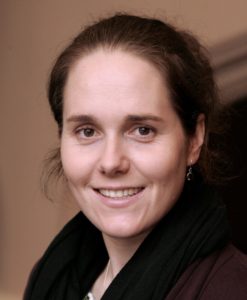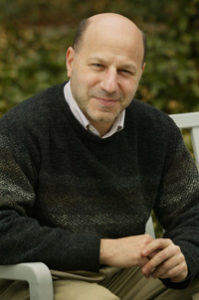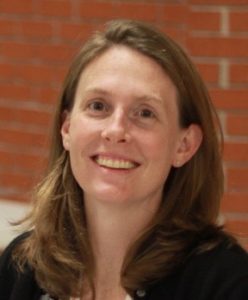The Andlinger Center for Energy and the Environment at Princeton University awards seed funding to catalyze and support projects proposed by University faculty, researchers, and students that are aimed at solving a broad range of energy and environmental problems. These projects foster innovative research, teaching, and mentorship in energy and the environment.
Three new research projects were supported in 2015-2016, bringing the total number of projects supported since the inception of this initiative in 2011 to 35 and a total of $2.8 million invested.
This year’s projects entail:
Claire White
 Assistant Professor of Civil and Environmental Engineering and the Andlinger Center for Energy and the Environment
Assistant Professor of Civil and Environmental Engineering and the Andlinger Center for Energy and the Environment
“Role of Alkalis in Destabilizing the Binder Phase in Low-CO2 Concrete”
Portland cement is a fundamental constituent in concrete and whose production emits up to one ton of carbon dioxide for every ton produced, accounting for five to eight percent of global carbon-dioxide emissions. This project explores low-carbon cements derived from blast furnace slag at the molecular scale. The combination of computer simulations and laboratory experiments on synthetic gels identifies which chemical compositions lead to the most stable (durable) structures at the molecular level.
Howard A. Stone
 Donald R. Dixon ’69 and Elizabeth W. Dixon Professor of Mechanical and Aerospace Engineering and the Chair of the Department of Mechanical and Aerospace Engineering
Donald R. Dixon ’69 and Elizabeth W. Dixon Professor of Mechanical and Aerospace Engineering and the Chair of the Department of Mechanical and Aerospace Engineering
“Innovations for Semi-Solid Flow Batteries”
Flow batteries, composed of chemicals dissolved in liquids stored in tanks, are a type of rechargeable battery that can potentially be widely used on the electric grid because they are long lasting and store large amounts of power. But current models have low energy densities. A recent innovation in flow batteries for achieving higher energy densities utilizes a suspension of solid particles of Li-ion compounds (which are used in lithium ion batteries) along with conductive carbon nanoparticles. This type of battery, a semi-solid fuel cell (SSFC), raises new questions involving rheology — the study of the flow of matter — and transport and materials design to optimize performance. This project aims to develop a standard flow battery configuration that can be used to rapidly test materials ideas relevant to SSFCs, while simultaneously measuring all the relevant mechanical properties.
Sarah Jane White
 Visiting Associate Research Scholar, Department of Geosciences
Visiting Associate Research Scholar, Department of Geosciences
“An Interdisciplinary Project to Ensure the Environmental Sustainability of Organometal Halide Perovskites, a Class of Potentially Transformative Solar Energy Materials”
Renewable energy sources, such as solar power, are critical for the sustainable future of our planet. Organometal halide perovskites is a class of photovoltaic material that is poised to revolutionize the world of solar energy because they are cheap, easy to make, and may help prevent the most damaging impacts of climate change. However, the instability of these solar cells and their subsequent release of lead to the environment leads to concerns for the environment and human health. This project aims to understand the chemical and physical mechanisms of perovskite degradation on a molecular level, and how changes in the chemical and physical structure of perovskite affect this degradation. Impacts on the environment will be assessed by determining concentrations and speciation of degradation products, then modeling their fate and transport in the environment.
Funding
Funding for these projects are provided by the Andlinger Innovation Fund, a gift from Charles Bernheim ’57, the Clifford and Helen Cross Memorial Charitable Lead Annuity Trust, the Nancy A. Curtin ’79 and John Stafford Research Innovation Fund, the Peter C. Klosowicz ’76 Fund for Energy and the Environment, the Sally Liu ’87 and Bay Chang ’87 Fund for Energy and the Environment, the Laurie and Jay P. Mandelbaum ’84 Fund for Energy and the Environment, the Parallax Fund for Energy and the Environment, the Ruehl Family Fund for the Environment, the Schlaepfer Family Fund, a gift from the Richard and Enika Schulze Foundation, the David P. Simons Fund for Energy and the Environment, and an anonymous gift for research.
For more information on the Andlinger Center for Energy and the Environment at Princeton University, contact Sharon Adarlo, communications specialist, at sadarlo@princeton.edu or (609) 258-9979.